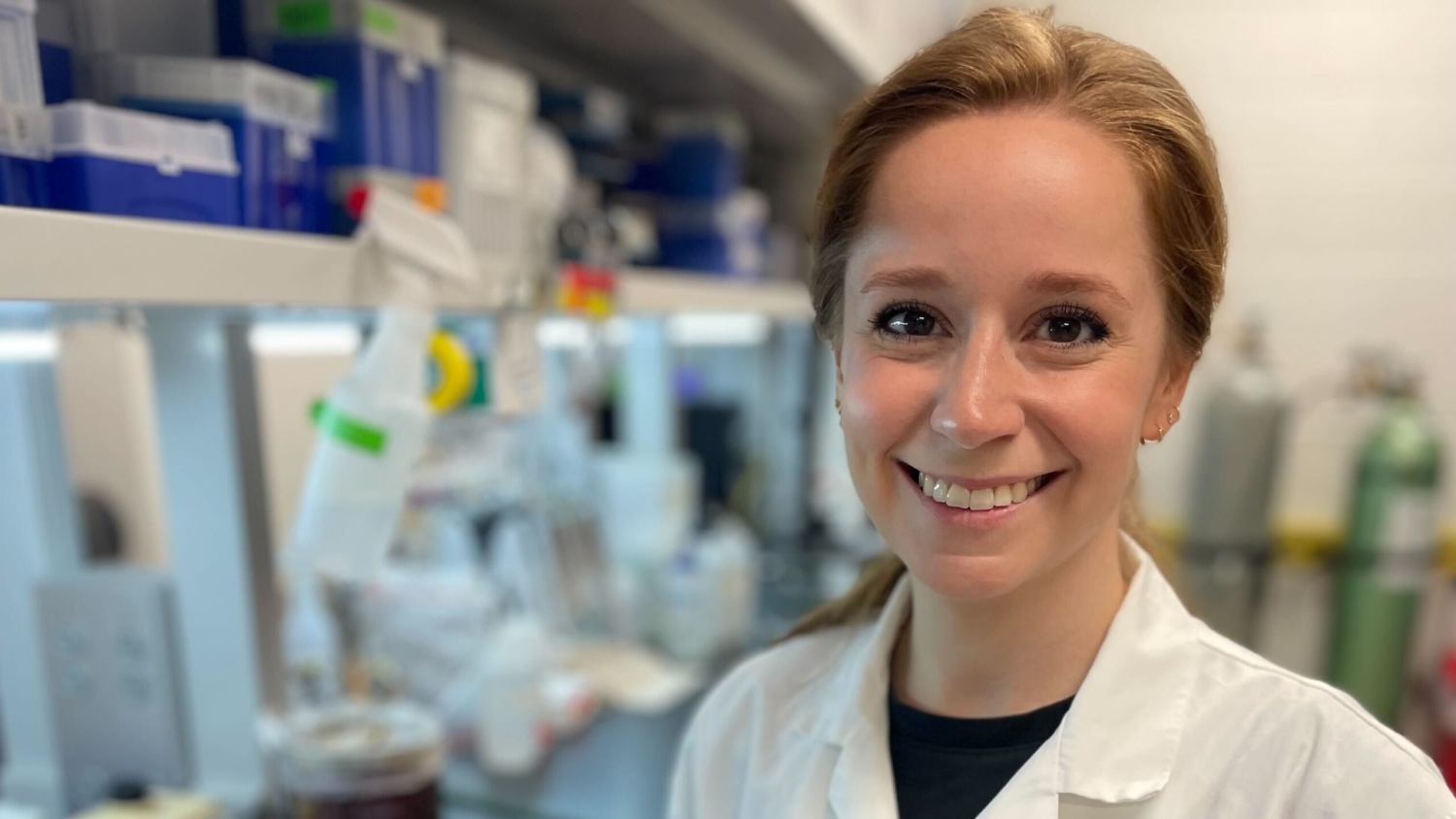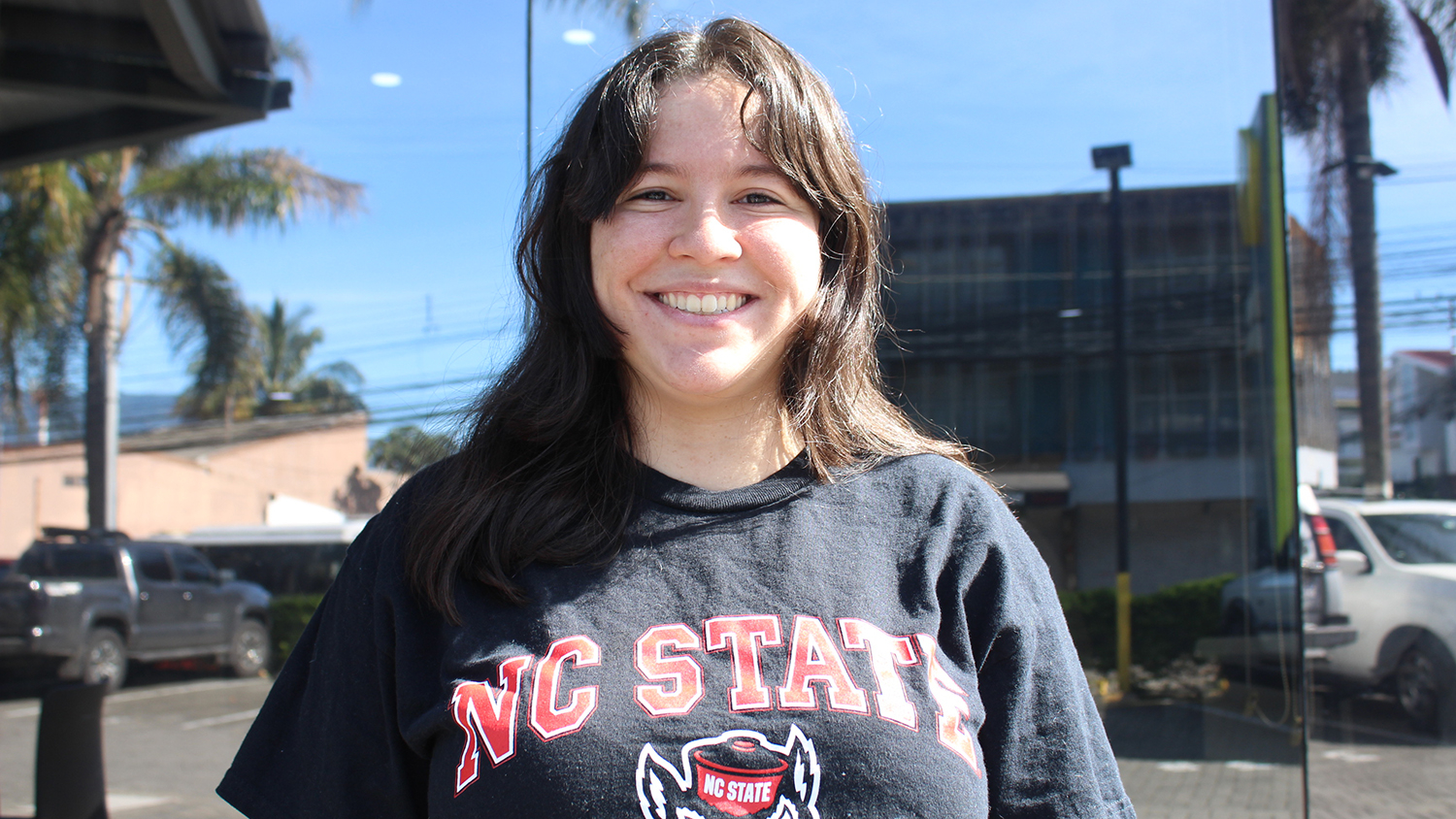Award-Winning Plant Science Grad Student Hopes To Share Research Internationally

With research aimed at helping scientists develop a more targeted approach to the design and development of microbial products for sustainable agriculture, North Carolina State University Ph.D. student Anna Garrell will head this summer to Amsterdam. There, she hopes to present her findings to an international scientific audience.
Garrell will use proceeds from her Norma L. Trolinder N.C. Plant Sciences Initiative Graduate Student Endowment to make the experience possible. Established in 2023 by plant sciences leader Linda Trolinder in honor of her mother, also an important figure in the field, the endowment provided four highly qualified students awards of $4,000 each to support their graduate studies.
Garrell came to NC State’s Department of Plant and Microbial Biology in 2019 with the goal of marrying her interests in plants and bacteria. She’d earned an Auburn University bachelor’s degree in molecular, cellular and microbial biology and then worked with Boragen, a startup agricultural biotechnology startup in the Research Triangle Park that was acquired by another company.
“After I graduated from Auburn, I was really interested in either studying animal- or plant-associated bacteria. The startup I worked for in RTP was specifically looking at new fungicides for crops, and somebody in the somebody in the company at one point said, ‘Medicine only goes so far if people are starving,’” she recalls. “I thought that was profound – that at the end of the day, food is one of the very basic needs.”
We sat down with Garrell recently to learn more about her research, the value of the Trolinder Award and her career goals.
Can you describe your research in Manuel Kleiner’s lab?
In the Kleiner Lab, I have been studying corn root-associated microbes. We use a technique called metaproteomics, which allows us to identify all of the proteins in a system. That gives us an indication of what all of the players (in a microbiome) are actually doing. My research focuses on understanding how microbes interact with corn roots and how microbes interact with one another in this environment.
We’ve actually seen that microbial metabolism changes quite a bit in the root, which gives us an indication as to what nutrients they might be using – for example, what kinds of sugars or carbon sources they’re growing on. We’ve also seen some secretion systems that indicate potentially how they’re actually communicating or directly interacting with the root, which has been really exciting.
Why is this research important?
What I would hope is that by increasing our understanding of how bacteria can interact with roots and vice versa, that we can maybe design or develop better microbial products in the future just by increasing our understanding of how they’re doing what they’re doing. I hope that we can increase our ability to design and develop these products.
How has the Trolinder Award helped you?
I’m excited to hopefully be able to share some of my research at the Plant Microbiome Symposium in Amsterdam this summer and to hear from some of the best researchers in the world who study these kinds of systems. I want to learn from them and what kind of work they’re doing. And I’m also nearing the end of my graduate program at this point, so I’m also hoping to do a bit of networking and figure out those next steps a little bit.
What’s next for you?
The hope will be defending my dissertation late this year or early next year, which would mean a graduation of May, but we’ll see. Next, I’m really going to be looking for a job in industry. I’d love to keep doing plant microbiome work.
In the long term, I would love to end up in ag tech investment and help take these great novel ideas that come out of universities and help fund those ideas into companies that can actually produce products for growers.
This post was originally published in Plant Sciences Initiative.
- Categories:


